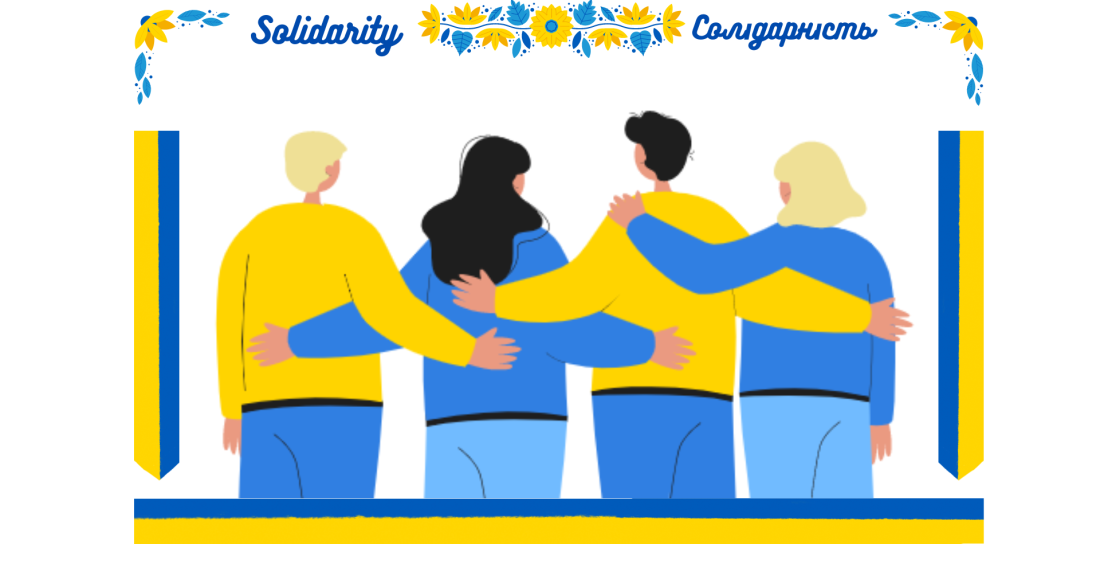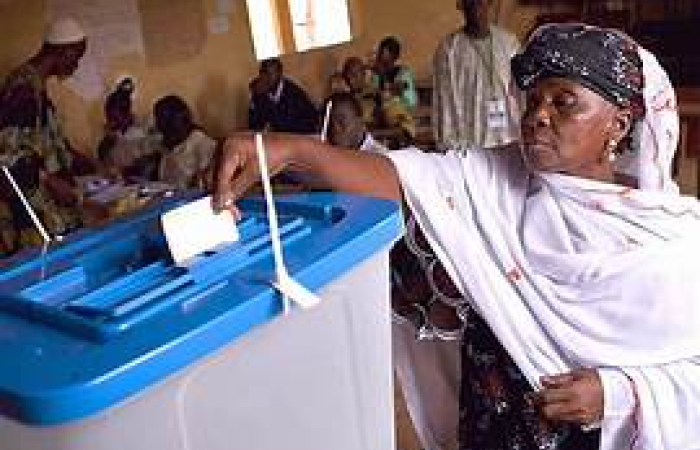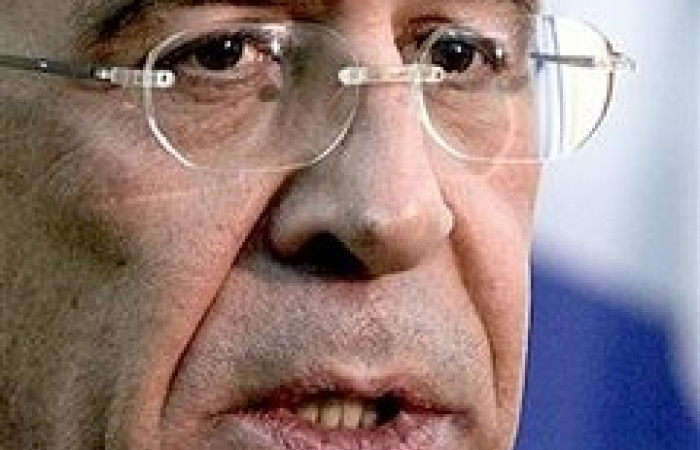This week marks the first anniversary of the Russian invasion of Ukraine. commonspace.eu will mark this week as one of solidarity with Ukraine and its people, and is running a number of articles and news items related to the conflict and its impact on the rest of Europe and the world.
On 24 February 2022, in the town of Kostyantynivka in Ukraine’s eastern Donetsk oblast, Anastasiia woke up at 4am to the sound of explosions. Not in her town, but about 30km away. When the first explosion hit she did not understand what was going on, but once the second explosion hit she rushed to her parents’ room and told them that the war had started.
Her father didn’t believe her at first. They had spent months believing that such a war in the 21st century was impossible. She begged her parents to leave Kostyantynivka for weeks until they took the decision to leave for Ukraine’s capital, Kyiv, in April.
“My town is 25km from Bakhmut, and now my town is under shelling every day with several rocket attacks,” Anastasiia told me. “Living in my town is still possible, for example my best friend is still there, but he says that with time you get used to it.”
“But when I was there I realised that I couldn’t stay there, it was a burden on my shoulders. That’s why when we left our home I was really glad, and I started looking for something that could help other people,” Anastasiia carried on telling me in perfect English.
One day she saw a post on Instagram from a Russian blogger, Eva Morozova, saying that a project called Samantha Smith’s Group needed more volunteers to help teach Ukrainians foreign languages. Anastasiia thought about it for a couple of days, applied, and eventually joined the project as a coordinator helping over 60 students find English teachers. Soon after she decided to switch her role, and has now been teaching English to fellow Ukrainians for five months. Not only this, but she also is a facilitator for the Speaking Clubs, which, again, is entirely voluntary, and she also founded the Business Speaking Club. In total Anastasiia has volunteered for Samantha Smith’s Group for some eight months.
“When the war began I really needed to have a certain form of protest.”
At the start of Russia’s full-scale invasion of Ukraine, Nadya went to a couple of protests and was detained once, but soon realised that it was impossible for her to stay in Russia because of her anti-war stance. She fled to Ireland, where she had lived previously, and she wanted to do something in protest at the war with the resources that she had. “When the war began I really needed to have a certain form of protest,” Nadya said.
“Then my friend, who is an English teacher, said that she had set up a group to give Ukrainian refugees free English lessons, and I decided to do exactly the same thing. I made a form where you could sign up, and on that first day 50 people signed up, and then there were more and more and more.”
Wanting to help as many Ukrainians as possible who had fled Russia’s invasion by teaching English, Nadya started to post online asking for colleagues and volunteers who would want to join her. “Even at the start I had this feeling that it was something important that would grow into something bigger,” Nadya told me.
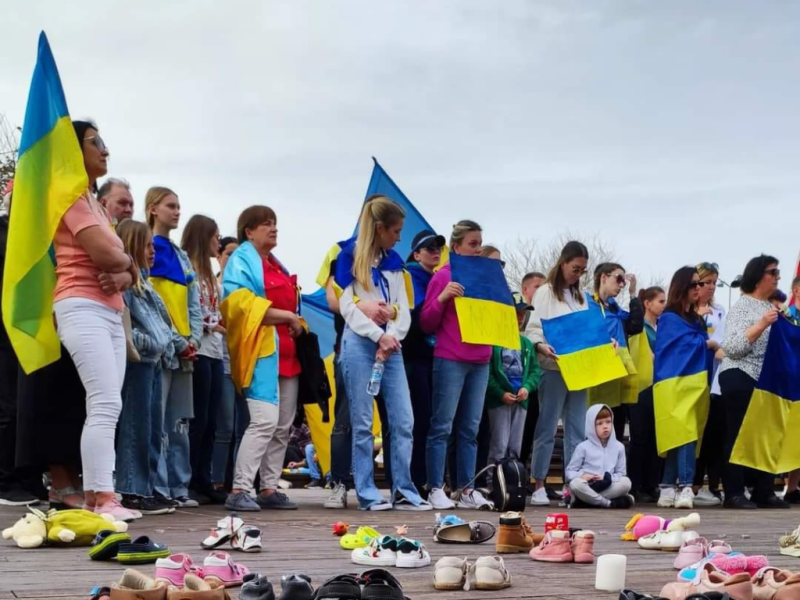
Uniting Ukrainians and Russians amid the horrors of war
Named after a young American girl who famously sent a letter to Soviet leader Yuri Andropov in 1982 worried about the threat of nuclear war between the USA and the USSR, since March 2022 Samantha Smith’s Group has grown from a small initiative of two English teachers in Ireland and a handful of students to a global volunteer movement of over 500 volunteers teaching over 4,000 Ukrainian students foreign languages.
Since the beginning last year, over 600 English study groups have been launched, and Ukrainians can also sign up to learn other languages including French, German, Spanish, Polish and Swedish. Alongside the lessons and speaking clubs, Samantha Smith’s Group also organises CV and job interview workshops to help students find employment abroad. One student even won an internship at Amazon as a result, and is now looking for work.
Originally conceived as a protest, Samantha Smith’s Group has evolved into a herculean effort run by a tight-knit, principled and dedicated group of individuals committed to making a very genuine difference to Ukrainians whose lives have been turned upside down by Russia’s invasion of their country.
However, although the teachers come from all over the world, from Canada to New Zealand, from the UK to Costa Rica, as well as Ukraine and Belarus, the majority of volunteers teaching English to Ukrainians in Samantha Smith’s Group are actually from Russia.
“Learning something new is a good idea so as to not completely fall into depression”
The response from the Ukrainian students to the teachers, regardless of where they are from, has been one of overwhelming gratitude and positivity. The project has been enormously helpful not only in teaching Ukrainians the language skills they need to survive and thrive abroad, or perhaps necessary for finding work in the future, but also in providing psychological relief.
Vladislava, originally from Mykolaiv, signed up for English lessons with Samantha after a friend saw information about the group on Facebook and shared it with her. Having sought refuge in Ireland, she decided that the “time had come to learn English and practise it with local people”.
She told me, “I am in the process of learning English and progress is obvious. I still speak poorly and unsurely due to a lack of real-life practice, but I have made great progress in studying and understanding grammar.” She finished by saying thank you to her “wonderful teacher”, Elvira.
Olha, from Kharkiv, said that she had lost her job because of the war, and needed English for her new job. “Furthermore learning something new is a good idea so as to not completely fall into depression,” she added.
“We learn, support each other, and communicate a lot”
Other students echoed much the same motivations and experiences from learning languages in Samantha Smith’s Group. Irina, originally from Kharkiv but also currently in Ireland, wrote, “English is very important to me, I can find a job, communicate freely and help others. When I return to Ukraine, English will help me work with foreign partners. I really like our classes, the teacher and the girls from the group. We learn, support each other, and communicate a lot.”
A different Anastasiia, this time a student from Mariupol, said that she had learned more English in Samantha Smith’s Group in 8 months than she had during 11 years of school.
In our conversation together, Anastasiia in Kyiv told me that while some of her students abroad do indeed need basic English to communicate with local people, the classes serve a vital secondary function.
“But for students who are staying in Ukraine,” Anastasiia said, “I guess for them it is alleviating their suffering from the war, something that makes them feel better, makes them feel less anxious and nervous…volunteering at Samantha Smith’s Group has helped me alleviate my suffering too.”
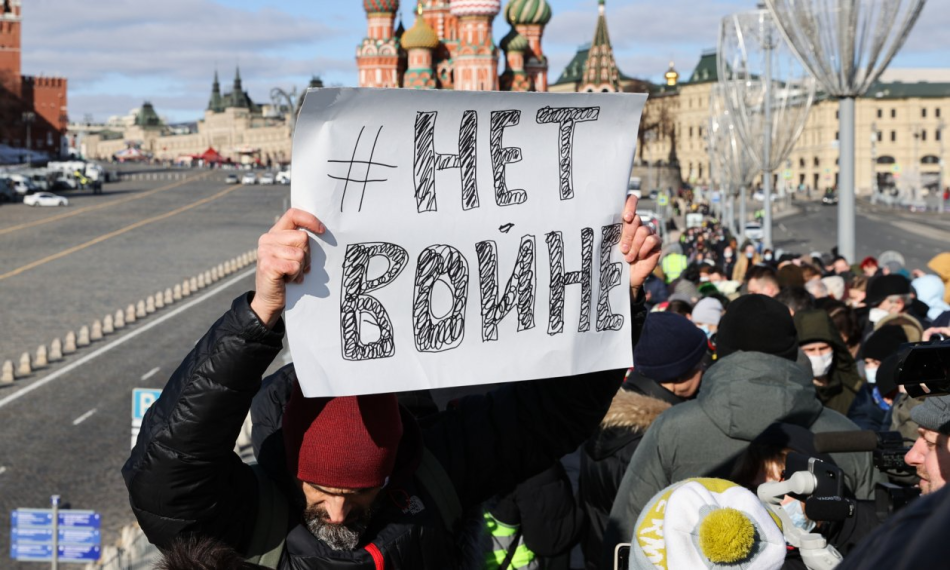
“This project restored my faith in humanity”
It is not within the scope of this article to engage with the controversial debate of what proportion of the Russian population supports Russia’s invasion of Ukraine and actively welcomes the barbaric destruction inflicted on Ukrainians by Russia. Not to distract from the Ukrainians whose lives have been upended by Russia’s invasion, Samantha Smith’s Group has been instrumental in supporting Russians who feel a profound guilt over the actions of their country and are now trying to make some small amends.
Mila, an English teacher from Russia, told me, “I was in a bad place, almost couldn't function, sleep, or eat. I desperately wanted to help Ukrainians, to show myself and the world that I care.” She continued, “I've met so many wonderful people, teachers, students and coordinators. We've become friends with my students and some of the colleagues. During every class I give [there is] lots of love and support. It may sound exaggerated, but this project restored my faith in humanity.”
Not only helping Ukrainians carry on and develop their skills in a time of great distress and upheaval, over and over Russian volunteers at Samantha Smith’s Group expressed how vital the project has been in helping them deal with the trauma of seeing their country inflict such enormous suffering on Ukraine, and feeling like they were powerless to stop it.
“I don’t know if I‘ve really helped anyone but my Ukrainian students definitely help me”
Elena, also an English teacher from Moscow, said that the project had been her “salvation”. “I really don't know who it has helped more: me or the students,” she carried on. “When you hear one terrible piece of news after another, sometimes the only thing that can get you out of this is helping those who have suffered from these events.”
“This project really helps me not to lose hope for the future,” Olga told me in much the same vein. “My classes with the students are those anchors which help me with my everyday life. I don’t know if I‘ve really helped anyone but my Ukrainian students definitely help me.”
Dasha from the Ural region told me that volunteering in Samantha Smith’s Group makes her feel better. “Especially when me and my students talk about the war and we support and hear each other out. No hate whatsoever. It's really therapeutic.”
“We will someday meet in Kyiv and have a cup of coffee together”
Alina is a Russian administrator, coordinator and teacher at Samantha Smith’s Group who, among her other roles, has been teaching two Ukrainians English since April 2022, one who is living in Kyiv and one who has moved to Portugal.
“They are great, they are amazing,” Alina told me in an interview. “Despite all the atrocities that are happening to the country, the response [in my group] was good. No-one talks or asks ‘why is this happening?’, or ‘why are you doing nothing?’ They are eternally grateful for the opportunity they have. Of course you can see that they are suffering, and in my lessons I try not to focus so much on that but sometimes you can’t avoid it,” she said.
“If there was a bombing in Kyiv we talk about it and learn some vocabulary because when they go to another country they will have to speak about it. But I know it is different for other groups.”
While some students are so scarred by the war that they say that they would prefer a Ukrainian-speaking teacher, many Ukrainian students do in fact not object to having a Russian-speaking or even a Russian teacher. Out of the thousands of Ukrainians whom Samantha Smith’s Group has helped, only one potential student is known to have reacted very negatively at the prospect of being given a Russian teacher.
“I am constantly amazed by my students’ spirit, by their belief that everything will be okay, that we will someday meet in Kyiv and have a cup of coffee together when this is all over. This is a constant theme in our conversations.”
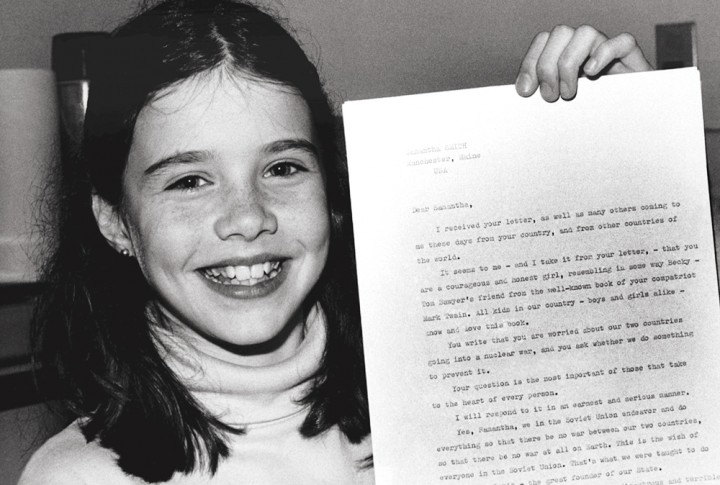
“We try to create a safe space for students to talk”
Aside from ordinary language classes dealing with topical vocabulary or the fundamentals of grammar, one of the cornerstones of the Samantha Smith project are Speaking Clubs, managed by Polina, a woman from St Petersburg who has been living in Finland for the past five years. Feeling “absolutely lost” at the beginning of Russia’s full-scale invasion, Polina also saw an Instagram post about Samantha, filled out the form, and joined the group.
Starting with only two clubs a week and only a couple dozen students at the very beginning, the Speaking Clubs are an opportunity for students to come together and chat about random topics to improve their speaking skills. “People come just to have a good time, it’s more fun than just studying grammar,” Polina joked. “It is a community inside the community…we try to create a safe space for students to talk and share something, to discuss different topics.”
“Some teachers say they only want to lead the Speaking Clubs because it’s more like a party, you know? You invite some people, just spend some time chatting, discussing some interesting topics, and that’s all!”
The Speaking Clubs have grown just as quickly as the rest of the Samantha Smith project, now consisting of over 300 groups dedicated to giving Ukrainians free, topical speaking practice, supported by around 100 teachers from a huge range of backgrounds. “They could be environmental scientists, or wine enthusiasts, or businesspeople, or translators, and through this club they share their experience and usually choose topics that are close to them.”
“It gives me so much energy”
Having lived in Finland for five years and trying to learn Finnish - a notoriously difficult language - Polina explained that she is still nervous to speak the language with locals. “That is why I look at the students and think that they are the real heroes!” she laughed. “Usually they try to use their languages all the time, they are not shy to ask native speakers how to say this and that. I think I am actually a bit jealous, and I learn from them too.”
The range of Ukrainian students at Samantha Smith’s Group is not only students and young adults looking to work and integrate into their host societies, or preparing for the future. For Polina, one of the most interesting experiences of volunteering at Samantha has been with older people, some over the age of 70. Although studying at a slower pace than others, one group of elderly women have been coming to the Speaking Clubs since the very beginning and, despite having indeed made gradual progress, still insist on going to the beginners’ club because they like their teacher, Anna, so much.
“They discuss different topics, like going to the hairdressers,” Polina recounts. “It is so funny because one time they asked ‘okay Anna, next time can we discuss something about shopping? There are huge discounts in Ireland this week!’” Of course, their teacher Anna is only too happy to oblige.
“She usually makes a presentation for them, they discuss it, and then they go shopping and they immediately use all these words. They are really active.”
“All the time they are writing how thankful they are, that our teachers are super cool, that the organisation is super cool, it gives me so much energy,” Polina said. Such is the joy that Samantha has given to Ukrainians wanting to learn languages, and to Russians wanting to help them.

“Everyone should do something and make a contribution to our victory”
As Russia’s full-scale invasion of Ukraine enters its second year and Vladimir Putin is showing no signs of recognising that his dream of conquering Ukraine has failed, Samantha Smith’s Group is an inspiring testimony of the power and value of simply helping other people in their hour of need. Not only for those who need help, but also for those offering it too.
“At the beginning I was afraid, thinking, ‘How will Ukrainian students take me in?’”, Margarita told me. “But then, when our classes began, I realised that I had nothing to be afraid of. I felt love and gratitude. And now my students and I have become a real team. We help each other with everyday things, we laugh a lot, we talk about everything. This project gave me hope that the future between our countries is possible, but we Russians need to work hard on it. And here I am working.”
Back in Kyiv, Anastasiia continues to volunteer in many different capacities for Samantha Smith’s Group alongside studying online at Kostyantynivka Medical College, hoping to study abroad and eventually to work for a medical company.
“What about hopes for my country? Of course I believe in our victory, and I always say that everyone should do something for our victory,” Anastasiia told me. “For example, soldiers should fight. Volunteers should volunteer. Students should study because they are the future of our country. Entrepreneurs should set up their businesses, and should boost our economy. So everyone should do something and make a contribution to our victory. Every step, even the smallest one, is a small step to our victory.”
In a time where families split between Ukraine and Russia have irreconcilably fallen out over the truth and denial of the horrors of Putin’s invasion, Samantha Smith’s Group is helping to build new relations and forge new friendships between Ukrainians and Russians based on respect, support, understanding, and exchange of knowledge.
In fact, Samantha Smith's Group has already started the confidence-building process between those Ukrainians and Russians who are as horrified as each other at Russia’s full-scale invasion of Ukraine, long before the war has reached its conclusion.
It is a pioneering project that shows that a better world is possible.



